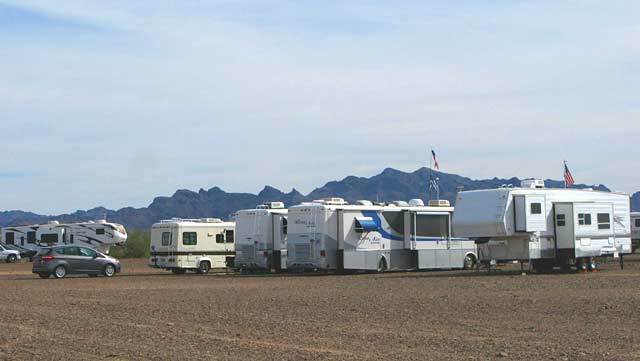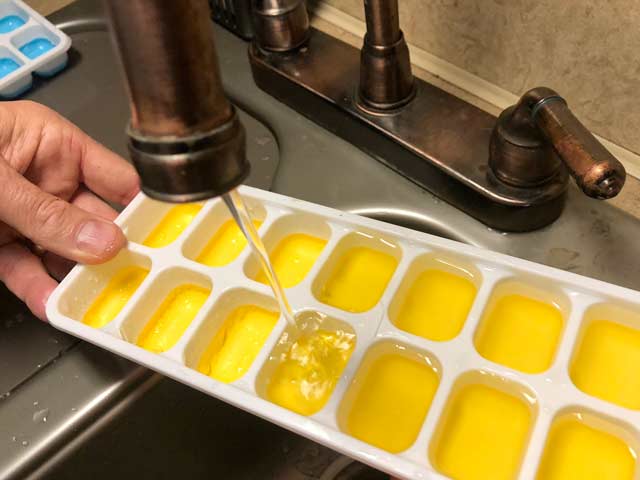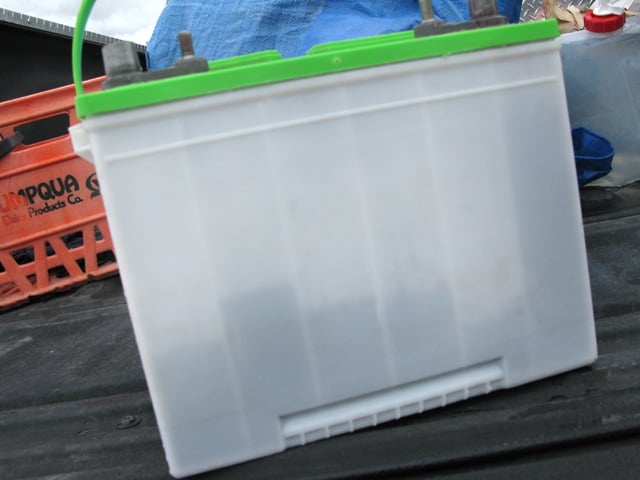If you’ve never tried RV boondocking, you’ll quickly learn that full-hookup RV park stays are totally different from a dry camping experience. When you’re thinking of making the switch, these two RV boondocking basics for newbies will help you do it with ease.
The Two Most Important RV Boondocking Basics You Need to Know

To some RVers, dry camping is unthinkable. Camp off-grid? Never! It’s hard to give up creature comforts we take for granted, like water, sewer and electric on demand, but many of us find the benefits to be worth the sacrifice. The benefits of RV boondocking include:
Camping far away from crowds and noiseGetting closer to natural surroundingsEnjoying the slower pace of life in comfort, like sleeping under the stars on a real mattress!
When my husband and I transitioned from tent camping to RVing twelve years ago, we couldn’t wait to try RV boondocking. But our earliest attempts to camp without hookups were epic fails. Our RV felt so home-like that we often forgot the backcountry conservation tips we practiced when we carried our home on our backs.
For example, the two biggest hassles we repeatedly encountered in our first few years of RV boondocking were running out of water and firing up our Honda Super Quiet generator more often than we wanted. Twelve years later, we have the art of dry camping down to a science.
Here are the two most basic RV boondocking tips we’ve learned that can reduce your learning curve to make camping easier and more enjoyable.
Tip #1: Start with Water Conservation

Most all of us leave the faucet on while dishwashing and tooth brushing with full-hookups. That bad habit must stop when you go dry camping without a water connection.
Ironically enough, on-board water conservation is a critical part of dry camping comfort. Once you fill your freshwater tanks and get situated in your campsite, the last thing you want to do is relocate to find fresh water because your holding tanks are empty (or full of grey water).
Make water conservation the first thing on your mind when you open the tap in the kitchen and bathroom. Use your precious fresh water as if it’s the last supply on earth. Some RV boondocking basics to conserve water include:
Barbecue more often. Outdoor grilling keeps RV stoves clean.Clean dishes with minimal soap. Use a spray bottle mixed with a few drops of dish soap and a lot of water to keep suds low.Get used to bird baths. Pre-moistened body wipes and dry shampoo are great hygiene tools to keep clean in-between showers. On shower day, a low-flow RV shower nozzle with an off valve for soaping up will save you gallons of fresh water.Consider a grey water recycling system. If your RV has more black tank room than you normally use, you may be able to recycle grey water into your RV toilet.
Tip #2: Be Kind to Your Batteries

Most RVers would probably agree that this is one of biggest boondocking challenges. All of us are used to plugging in and forgetting about our electricity consumption. But once we rely on RV batteries to carry our loads, we quickly realize the value of RV solar electric power investments.
If your RV doesn’t have a solar power system, these electricity conservation tips can minimize reliance on your generator and avoid annoying RV neighbors.
Don’t keep a constant demand on your RV batteries. Minimize the use of appliances and toys that require you to keep charging house batteries. Your television, laptop and unused lights are three of the biggest energy hogs.Leave kitchen appliances behind. Your great grandma didn’t need a microwave to whip up an awesome meal. Think back to the cooking tools she used like stovetop tea kettles, sharp knives for hand-chopping veggies and cookie sheets for oven-heated left-overs. These things do not require power and turn out equally tasty results.
RVs are designed as self-contained vehicles that have everything you need for comfort whether you’re on the move or enjoying dispersed camping on BLM land. Get into the habit of these RV boondocking basics and you can enjoy your rig to its fullest potential, far from crowds and the chaos of daily living. Isn’t that why you wanted to camp without hookups in the first place?
This information is for educational purposes. VIARV shall not be responsible nor retain liability for RVer’s use of the provided information. Prior to making any RV service decision, you are advised to consult with an RV professional.


Comments